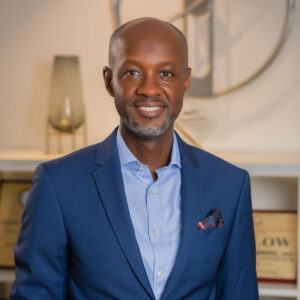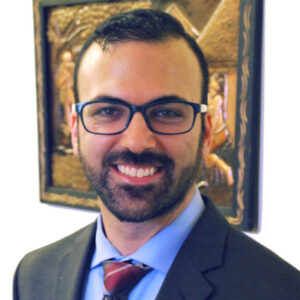Foreign Interventions and Instability in West Africa
Virtual Briefing Series
Tuesday, March 19th, 2024 | 12:00 PM – 1:00 PM ET
West Africa has been the focus of a multitude of international organizations and nations, investing themselves into humanitarian and peace operations in the region over the last twenty years. Yet, since 2020 the region has seen a recent surge in coups, in the midst of a growing trend of extremism, terrorism, and human trafficking. While in some cases the challenges to stability and democracy have been mitigated, in others instability continues to grow, as seen in the recent kidnapping of schoolchildren in Nigeria. France has officially abandoned a decade’s worth of intervention in Mali, and the G5 Sahel, once promising, has been fractured by coups in Mali and Burkina Faso. This region of the world holds significant potential for human and economic development, as showcased by Nigeria’s recent opening of the Dangote Oil Refinery. For all intents and purposes, this region of the world should be seeing independent success, rather than continuing cycles of violence and foreign intervention. Why has West Africa, seeing so much attention from governments across the global north, been unable to successfully capitalize on foreign and domestic efforts for stability? How have some countries in the region remained resilient and stable while others continue to struggle? What are the traits of capacity-building measures that have found success versus those that have fallen short? What have national actors in the region done differently from foreign powers? Why is West Africa of such concern to foreign powers?
Join us on Tuesday, March 19th, 2024 from 12 PM to 1 PM ET for a panel discussion with Dr. Kabir Adamu, Managing Director of Beacon Security and Intelligence Limited; Dr. Nathaniel Allen, Associate Professor at the Africa Center for Strategic Studies; and Dr. Sebastian Elischer, Associate Professor of Political Science at the University of Florida, where they will explore these questions and more.
COULDN’T ATTEND OUR EVENT? Don’t worry. You can watch it below
SPEAKERS:
Dr. Kabir Adamu
 Dr. Kabir Adamu is the Managing Director of the Beacon Security and Intelligence Limited. Dr. Kabir Adamu, a distinguished expert in enterprise security risk management and intelligence as well as national security solutions, serves as the Managing Director of Beacon Security and Intelligence Limited, a renowned Abuja-based firm that specializes in providing comprehensive security risk management and intelligence solutions in Nigeria and the Sahel region. With a sound academic background, a rich history of experience and an impressive track record, Dr. Kabir Adamu is recognized for his exceptional skills and leadership in the field of security and intelligence. A dynamic and highly professional security and intelligence executive, Dr. Kabir Adamu has excelled in both the public and private sectors, including the humanitarian and development sector. His expertise extends to security consultancy and project management at the multinational level, supporting clients operating in volatile, uncertain, hostile, challenging, and complex environments. At Beacon Security and Intelligence, Dr. Kabir leads a team of seasoned security professionals who share a commitment to professionalism and excel in delivering a wide range of security risk management and intelligence solutions. These solutions include National Security Sector Governance and Reform capabilities, Risk and Crisis Management, Security Investigation, Background Checks, Atmospherics, Security Intelligence, Security Escort Services, Journey Management, Real-time Incident Reporting, Intelligence Consulting, Hostile Environment Awareness Training (HEAT) and so much more. Dr. Kabir holds a Doctorate in Strategic Security Risk Management, making him an authority in his field. He is widely regarded as the go-to expert for simplifying security challenges and offering practical, sustainable safety, security, and intelligence solutions. His approach is built on a foundation of professional integrity and a commitment to maintaining the highest standards. His dedication has earned him numerous accolades, licenses, permits, and accreditations from reputable organizations worldwide.
Dr. Kabir Adamu is the Managing Director of the Beacon Security and Intelligence Limited. Dr. Kabir Adamu, a distinguished expert in enterprise security risk management and intelligence as well as national security solutions, serves as the Managing Director of Beacon Security and Intelligence Limited, a renowned Abuja-based firm that specializes in providing comprehensive security risk management and intelligence solutions in Nigeria and the Sahel region. With a sound academic background, a rich history of experience and an impressive track record, Dr. Kabir Adamu is recognized for his exceptional skills and leadership in the field of security and intelligence. A dynamic and highly professional security and intelligence executive, Dr. Kabir Adamu has excelled in both the public and private sectors, including the humanitarian and development sector. His expertise extends to security consultancy and project management at the multinational level, supporting clients operating in volatile, uncertain, hostile, challenging, and complex environments. At Beacon Security and Intelligence, Dr. Kabir leads a team of seasoned security professionals who share a commitment to professionalism and excel in delivering a wide range of security risk management and intelligence solutions. These solutions include National Security Sector Governance and Reform capabilities, Risk and Crisis Management, Security Investigation, Background Checks, Atmospherics, Security Intelligence, Security Escort Services, Journey Management, Real-time Incident Reporting, Intelligence Consulting, Hostile Environment Awareness Training (HEAT) and so much more. Dr. Kabir holds a Doctorate in Strategic Security Risk Management, making him an authority in his field. He is widely regarded as the go-to expert for simplifying security challenges and offering practical, sustainable safety, security, and intelligence solutions. His approach is built on a foundation of professional integrity and a commitment to maintaining the highest standards. His dedication has earned him numerous accolades, licenses, permits, and accreditations from reputable organizations worldwide.
Currently, Dr. Kabir holds several esteemed positions and memberships, including:
● Fellow of the Risk Managers Society of Nigeria (RIMSON)
● Fellow of the Emergency, Crisis, and Disaster Risk Management Institute (ECRMI)
● Fellow of the International Institute of Professional Security, Nigeria (ISCA)
● Member of the American Society for Industrial Security (ASIS International), the leading
global organization for security professionals
● Member of the Security Institute, United Kingdom
Notably, Dr Kabir Adamu led the Security and Intelligence team at the Office of the President of the Senate in the 9th Assembly of the Federal Republic of Nigeria. He was part of the technical team that supported the Transition Committee in 2023 and is currently supporting the ministerial review process, mandated by Executive Order 13. His impressive career and profound impact in the field of security risk management and intelligence continue to shape and secure the future of Nigeria and the broader Sahel region.
Dr. Nathaniel Allen
 As Associate Professor at the Africa Center for Strategic Studies, Dr. Nate Allen oversees academic programming on cyber issues and peace operations. Dr. Allen’s expertise includes cyber issues, emerging technology, civil-military relations, and regional security partnerships across Africa.
As Associate Professor at the Africa Center for Strategic Studies, Dr. Nate Allen oversees academic programming on cyber issues and peace operations. Dr. Allen’s expertise includes cyber issues, emerging technology, civil-military relations, and regional security partnerships across Africa.
Previously, Dr. Allen was a policy advisor at the U.S. Institute of Peace (USIP) Task Force on Extremism in Fragile States. He has also worked at the U.S. State Department, House of Representatives, and as a research analyst at NORC at the University of Chicago. Dr. Allen’s work has appeared in a wide range of leading policy and peer-reviewed publications, including Armed Forces and Society, The Washington Quarterly, Democratization, Orbis, War on the Rocks, The Washington Post, and Foreign Affairs. He has received fellowships from American University, the Robertson Family Foundation, and USIP, where he was a 2016-2017 Peace Scholar. He currently serves as a Research Fellow at South Africa’s Stellenbosch University and is a Council on Foreign Relations Term Member.
Dr. Allen holds a Ph.D. in international relations and African studies from the Johns Hopkins University School of Advanced International Studies, an M.A. from Princeton University’s School of Public and International Affairs, and a B.A. from Swarthmore College.
Dr. Sebastian Elischer
 Dr. Sebastian Elischer is the Associate Professor of Political Science at the University of Florida.
Dr. Sebastian Elischer is the Associate Professor of Political Science at the University of Florida.
His work analyzes the interplay between identities and institutions. He is particularly interested in how identities shape and affect democratization and other political dynamics in Sub-Saharan Africa.
In his first book, Sebastian Elischer examined the salience of ethnic identities at the aggregate level of political parties in sub-Saharan Africa. His subsequent monograph Political Parties in Africa: Ethnicity and Party Formation was published by Cambridge University Press in 2013. It argues that the conventional conception of African parties as ethnic parties is wrong. Instead the African political landscape is considerably more diverse. Whereas ethnic parties dominate in some countries, non-ethnic parties have become the norm in others. Elischer finds a correlation between a country’s ethnic make-up and the salience of political ethnicity: countries with a core ethnic group are prone to form non-ethnic parties. In countries lacking a core ethnic group, ethnic parties constitute the norm. The book attracted reviews by Foreign Affairs, Party Politics, Political Science Quarterly, Perspectives on Politics, the Journal of Modern African Studies and African Studies Quarterly. His work on African parties also led to the publication of articles in Africa Spectrum and Democratization and a number of chapters in edited volumes. He received generous support from the Jacobs University Bremen (Germany) and the Friedrich Ebert Foundation. Related work has appeared in the Review of African Political Economy and Comparative Governance and Politics.
His second book Salafism and Political Order in Africa examines the effect of informal religious regulation on violent Islamic extremism in areas of weak statehood.It was published by Cambridge University Press in 2021. In it Elischer provides a comparative analysis of how different West and East African states have engaged with fundamentalist Muslim groups between the 1950s and today. In doing so, he establishes a causal link between state-imposed organizational gatekeepers in the Islamic sphere and the absence of homegrown jihadi Salafism. Foreifn Affairs rated the book as one of the best books in 2022. The book attracted favorable reviews from Foreign Affairs, Perspectives on Politics, the Journal of Modern African Studies, Strategic Analysis, and African Studies Quarterly. A potcast with Elischer about his 2021 book can be accessed here. Elischer has published his findings from this project in African Affairs, Comparative Politics, and The Journal of the Middle East and Africa. For this project he received generous support from the Gerda Henkel Foundation, the UF Humanities Scholarship Enhancement Fund, a research grant from the Association for the Study of the Middle East and Africa and the American Political Science Association.
Elischer is currently one of the editors of the African Studies Review, the flagship journal of the African Studies Association. In the 2021-2022 academic year, Elischer was a research fellow at the Kellogg Institute of International Affairs at the University of Notre Dame. There, he conducted research on post-1990 military coup outcomes. He regularly contributes to public debates on Africa. His most recent commentaries appeared in The Conversation, Foreign Affairs and the Monkey Cage. Between 2015 and 2017 he serves as co-editor of the Africa Yearbook. He has also provided extensive advice to the German foreign ministry and the German ministry for economic cooperation.
*PHOTO /STUART PRICE. Original public domain image from Flickr
OUR VIRTUAL BRIEFINGS ARE OPEN AND FREE FOR PEOPLE AROUND THE WORLD
We are trying our best to keep our community informed about foreign affairs, and we would appreciate if you can support us to keep this virtual briefing series going. No amount is too small.

